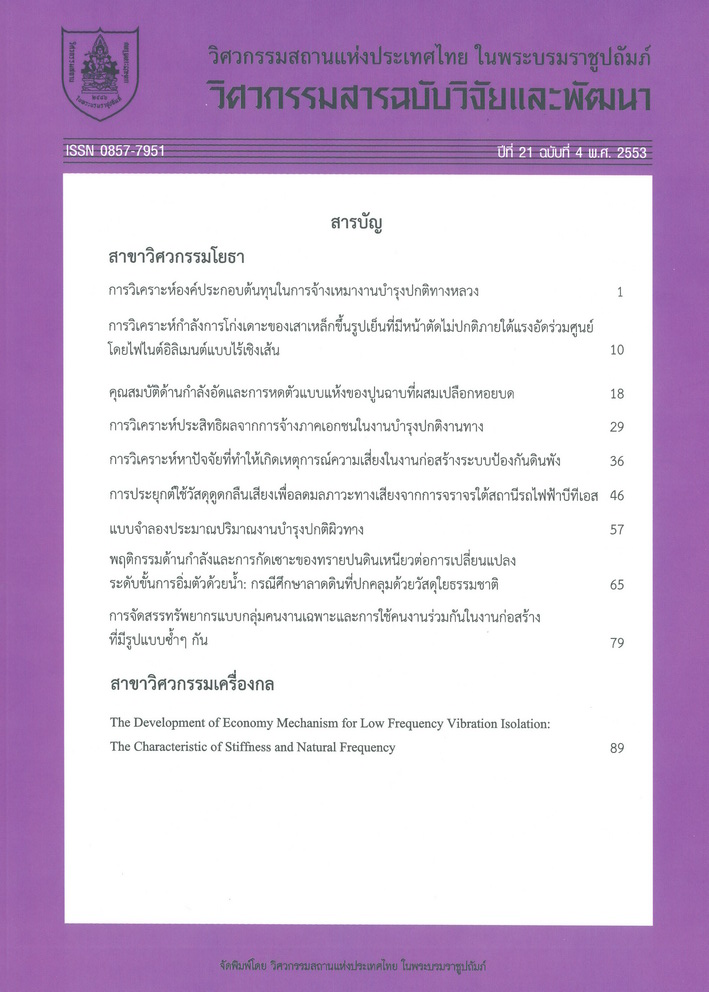การวิเคราะห์องค์ประกอบต้นทุนในการจ้างเหมางานบำรุงปกติทางหลวง
Main Article Content
Abstract
This paper presents an analysis framework of cost components and factors determining cost-effectiveness of contracting out road routine maintenance. The study was conducted through document reviews and interview of both operators and experts from the Department of Highways. Cost data from the Samutprakarn Highway District was used to demonstrate as a case study. The analysis covers three common activities in routine maintenance which are skin patching, deep patching, and grass cutting. For contracting out routine maintenance, there are three main cost components that should be considered: in-house costs which cannot be reduced, private contract cost, and contract procurement, administration, and inspection costs. Road agencies usually have maintained resources to carry out most of the works in-house. The reduction of such resources would significantly impact cost-effectiveness of outsourcing decision. The direct costs that may not be immediately reduced are direct personnel costs, machine and vehicle costs. For personnel reduction, the agency should have a plan of gradual change. The reduction of machine and vehicle, however, has to concern with the capability of the agency to response on emergency situation. In addition, if only small portion of maintenance works are contracted out, it may not cause significant impacts to reduce supporting personnel costs as well as other indirect costs. The analysis of the case study reveals various impacts caused by different factors resulting from dissimilar cost structure of each maintenance activity. It reflects diverse cost-effectiveness potential from outsourcing decision.
Article Details
The published articles are copyright of the Engineering Journal of Research and Development, The Engineering Institute of Thailand Under H.M. The King's Patronage (EIT).


